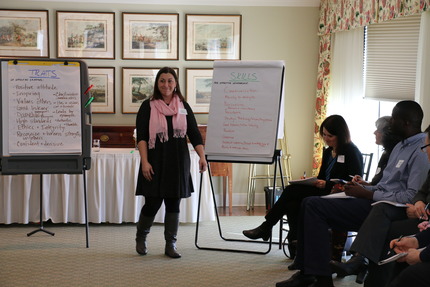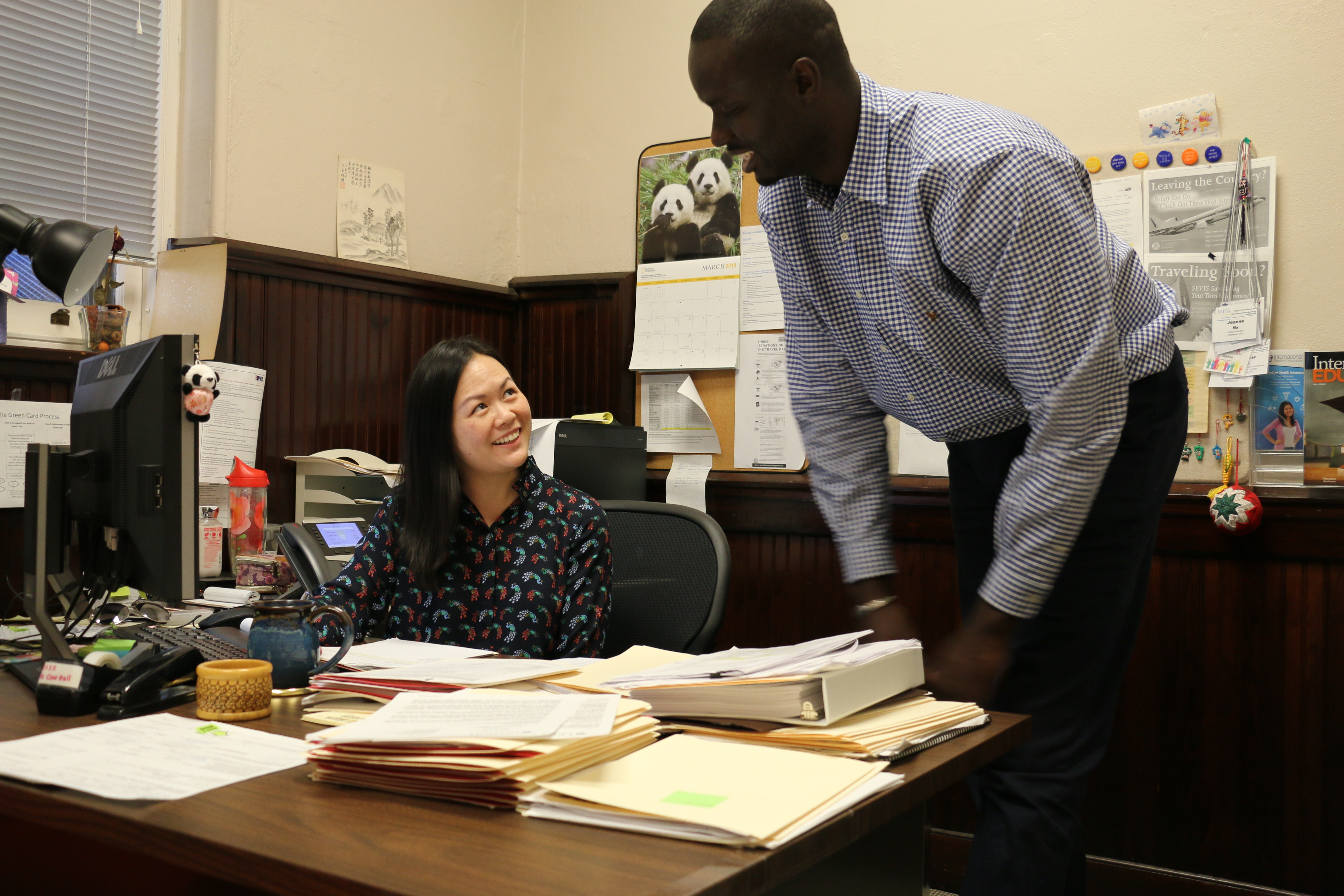
One of the questions that comes up frequently from staff members involves how Position Descriptions (PDs) get updated and re-evaluated. As we transition to the new PageUp career management system, employees will have easier access to their PDs and will be able to initiate the review process.
We thought this was a good moment to discuss the differences between a formal PD review and an informal review. We asked Lori Claudio (right), Director of Talent Acquisition and Compensation, to walk us through this somewhat complicated topic.
The Basics
Lori explained why we have position descriptions. “Each position at Lehigh has a purpose and it’s important that position responsibilities remain in line with the needs of the university,” she said. “Supervisors determine what duties are assigned to a position, as well as the level of independence and the educational and experience required.” That’s why it’s essential that employees work hand-in-hand with their supervisors when making changes to a position description.
At the same time, it’s important to note that Human Resources ultimately serves as the objective evaluator of the duties, responsibilities, tasks and authority level of all classified staff positions at Lehigh. “Our role in HR is to ensure parity in job titles, consistent job levels within university hierarchy, and consistency within salary ranges across the university,” Lori added.
It is the role of HR’s compensation team to ensure employees are paid appropriately by reviewing:
- The external market for people doing similar work in similar industries.
- The pay ranges of comparable jobs within the university.
- The level of knowledge, skills, experience and education needed to perform each job.
When Should A Position Description Be Reviewed?
There are a few common circumstances under which an employee or a supervisor might ask for their position description to be reviewed and potentially updated.
- Over time, an employee has taken on new and/or different responsibilities that were not originally outlined in a position.
- A supervisor has requested new and/or more duties be added to an employee’s responsibilities.
- A reorganization is taking place in an employee’s area that will change the job’s duties.
Formal or Informal: Which Is It?
Once you and your supervisor have agreed that your PD needs a review and perhaps some updating, you’ll need to make a decision about whether this is a formal review or an informal review.
Informal Reviews
An informal review can take place when the changes that need to be made involve:
- Adding “more of the same” types of duties. This might be something like managing two people’s calendars instead of one.
- Changes in accountabilities that are relatively minor (less than 10 percent of your duties).
- Changes in accountabilities that don’t differ significantly from current duties. For example, a task, such as upgrading or shifting to new software, that doesn't require new training beyond basic job tools.
Formal Reviews
This type of review is more involved in nature. It can sometimes result in a salary upgrade or in-grade adjustment. As such, the threshold for a formal review is higher:
- Changes in accountabilities that amount to more than 10 percent of your duties.
- Changes in your accountabilities that require learning new skills – for example, taking on management of the departmental website.
- A departmental restructuring that changes your job and who you report to.

Changes Ahead
As we all know, Lehigh is in a period of growth and change. The recent Voluntary Retirement Offer will certainly result in additional changes and adjustments in departmental roles and accountabilities. Maintaining open dialogue between staff and supervisors about position description is crucial to emerging from this transitional period as a stronger university.
“Some of the changes that will happen, where we’re leveraging technology for instance, will ultimately result in more efficiency, but sometimes an employee is being asked to pick up duties that add to their workload,” Lori said. “We really want to stress for both staff and their supervisors that they should stay in constant communication about what is considered realistic job expectations and duties. Hopefully this process will encourage employees to engage in meaningful conversations.”
We’ll be sharing more information about the mechanics of updating PDs in PageUp soon. Stay tuned.
